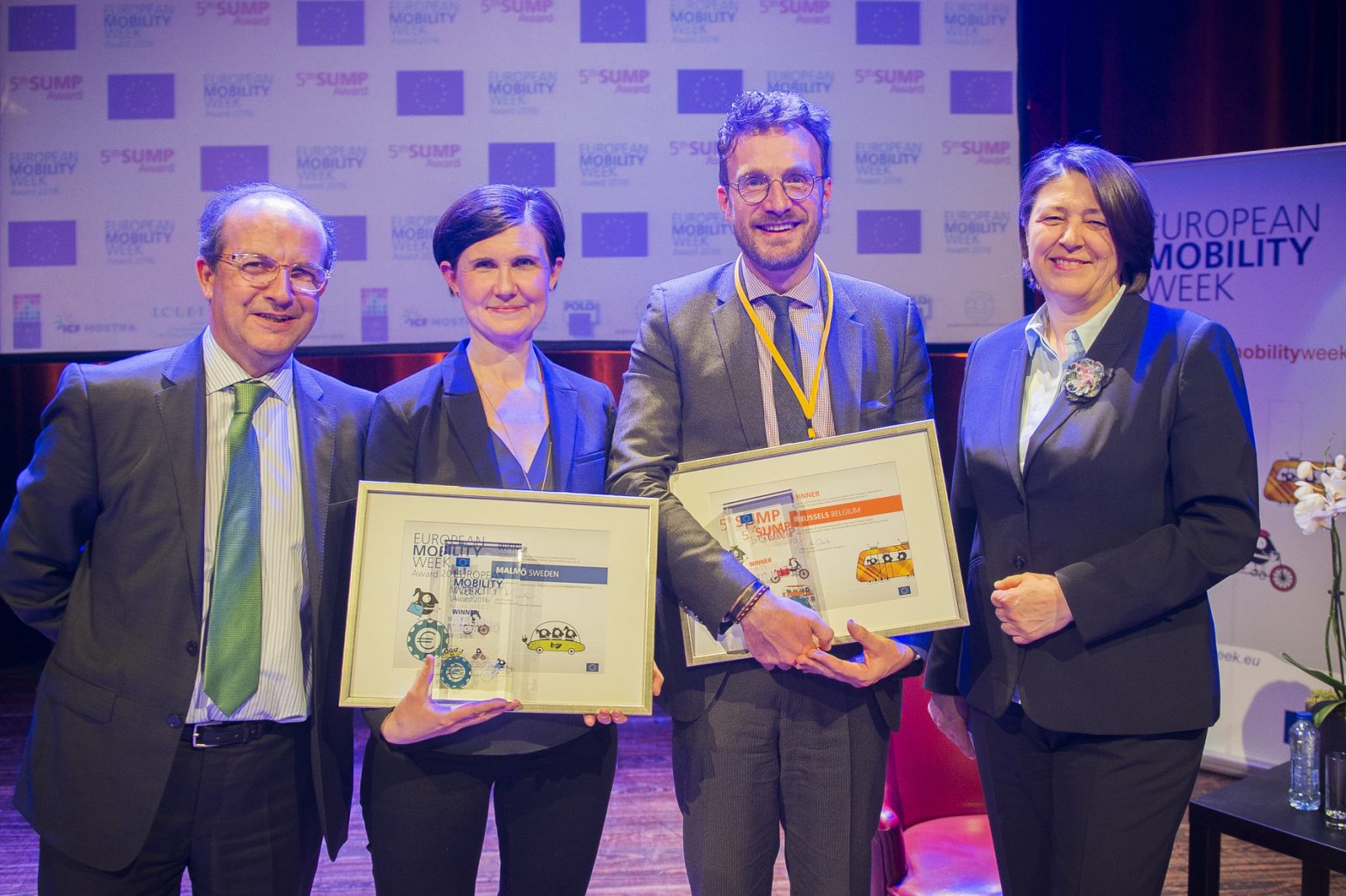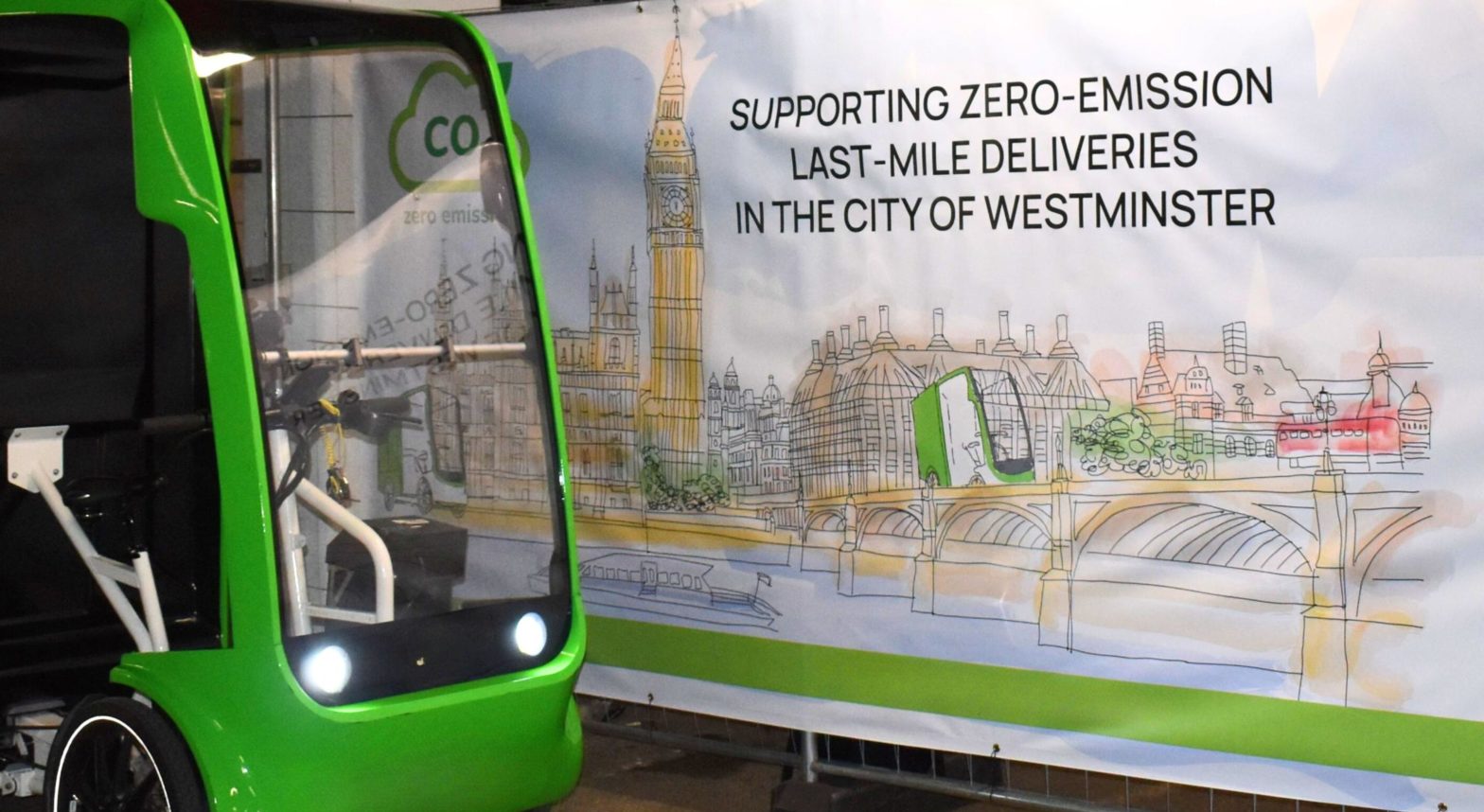
Photo: rsz_emw-award-ceremony_3
Malmö and Brussels receive sustainable mobility awards
07 April 2017
by Nick Michell
The European Commission has announced Malmö, Sweden, as the recipient of the EUROPEANMOBILITYWEEK Award for its long-term focus on active transport modes such as cycling and walking, and Brussels, Belgium, as the winner of The 5th Award for Sustainable Urban Mobility Planning, for its successful freight strategy.
“Our quality of life in cities means getting from A-to-B quickly, but also breathing clean air and enjoying quiet and uncongested streets,” said Karmenu Vella, European Commissioner for Environment, Maritime Affairs and Fisheries. “Brussels and Malmö have both shown in their own innovative ways that it is possible to make progress.”
Malmö, the third largest city in Sweden, receives the award for its efforts in promoting active travel and prioritising pedestrians and cyclists. Malmö has also implemented a series of permanent measures such as turning a major shopping street into a car-free zone, making its city centre safer and more attractive to local residents; and has set up a new bike-sharing system offering 500 bicycles at 50 stations.
Malmö is also successful in partnering with local businesses, proving that smart and sustainable mobility can have a positive impact on the local economy.
Brussels has succeeded in developing a strategic plan for freight transport that is well integrated within the passenger mobility strategy. The jury appreciated its innovative approach in identifying problems, finding opportunities and selecting the most relevant measures.
“I am very proud that Brussels Mobility, our Regional administration, has won The 5th Award for Sustainable Urban Mobility Planning,” Pascal Smet, Minister of Mobility and Public Works of the Brussels Capital Region, told Cities Today. “Freight transport in urban areas demands innovative solutions, and that’s what we’re trying to put in place.”
Brussels supports private sector initiatives for improved urban logistics, and consolidation efforts, including the use of consolidation centres, to increase efficiency and reduce the number of freight kilometres in the city. Aiming to reduce the adverse impact of freight, including congestion, emissions and noise, Brussels also makes strategic use of its involvement in national and European projects to help achieve the city’s goals.






